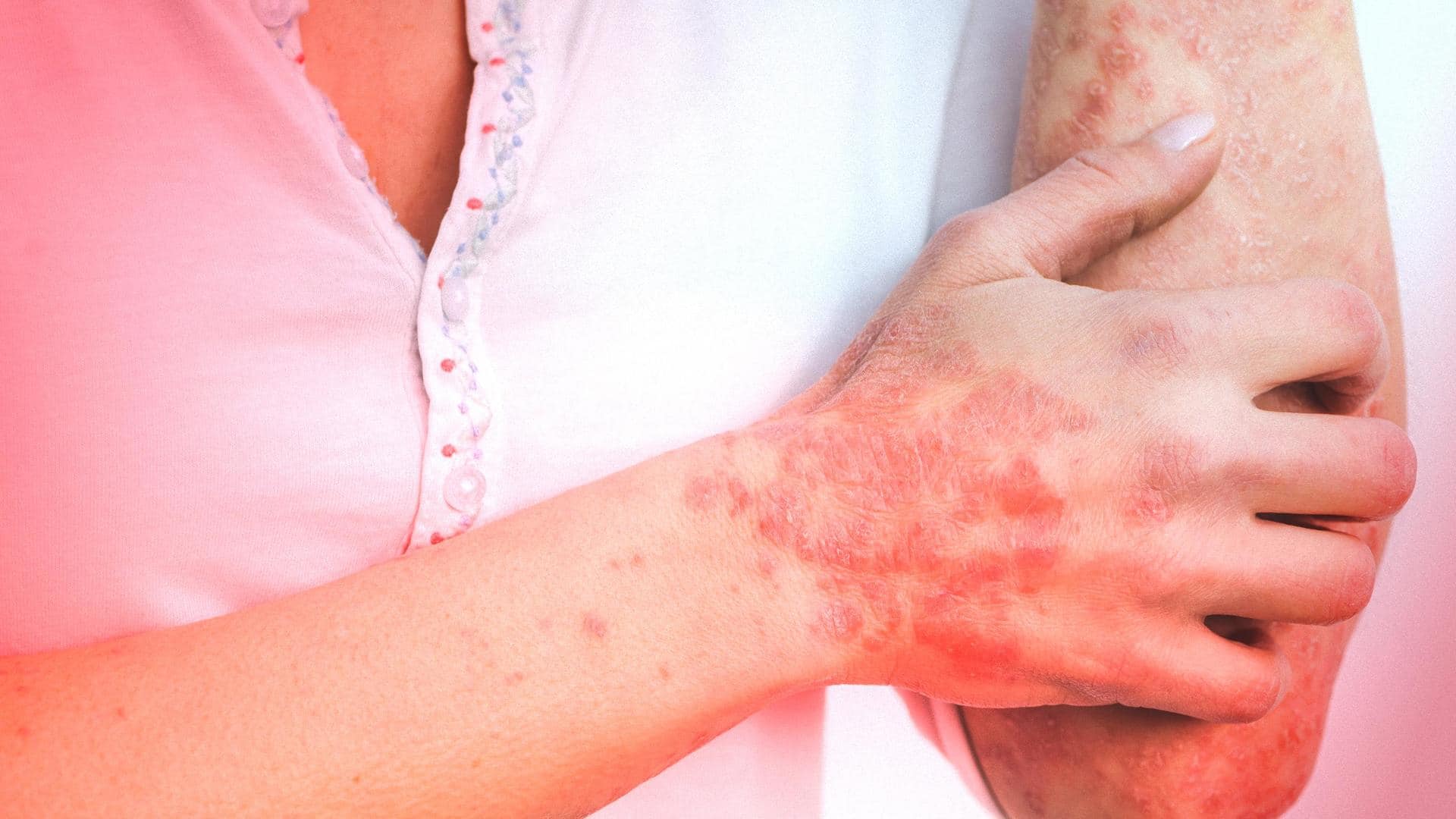
Psoriasis: From symptoms to treatment, here's everything you should know
What's the story
Here's a skin disease that is common and chronic but has no cure.
Psoriasis causes itchy and scaly rashes on the skin. It generally happens on the scalp, limbs, or entire body.
In some cases, it is painful and causes disturbances in daily life, especially with the sleep cycle.
From its causes and symptoms to treatment, here's everything you should know about psoriasis.
Causes
Infections, cuts, and burns are common triggers of psoriasis
Psoriasis goes through a cycle, spanning from a few weeks or months and then eventually subsiding for a while.
There are a few triggers that lead to this health condition, the most common of which are infections, cuts, and burns.
Certain medications can also lead to this long-term skin ailment.
Additionally, stress is one of the main constituents of this disease.
Information
Here are some other triggers
Besides the above-mentioned triggers, psoriasis can also occur due to cold temperatures, dry weather, heavy alcohol consumption, an over-reactive immune system that causes inflammation, and rapid withdrawal of oral or injected corticosteroids.
Symptoms
Dandruff-like scaling, itchy rashes, and dryness are some major signs
Signs and symptoms of psoriasis and their intensity varies from person to person.
Commonly, people experience a patchy rash that has a dandruff-like scaling or eruptions.
Rashes vary in color, spanning from hues of purple with grayscale on brown or black skin to pink and red spots with a silver or white covering.
The patches are dry, itchy, and sore, and cause burning.
Types
Types of psoriasis conditions
Plaque psoriasis is common and involves red-white itchy patches on knees, elbows, scalp, or lower back.
Nail psoriasis affects fingers and toenails, causing discoloration and pitting.
While guttate psoriasis affects the arms and legs, inverse psoriasis occurs near the buttocks and breasts.
Pustular psoriasis is rare and involves pus-filled blisters on arms and soles, whereas erythrodermic psoriasis covers the entire body with peeling rashes.
Treatment
Steroids or specific creams and lotions may come in handy
People affected by psoriasis are generally prescribed some special creams, lotions, and shampoos to reduce rashes and patches.
Dermatologists may also give steroids, orally or injected, to treat your condition, depending upon its severity.
In addition to this, they may also use other treatments, including light therapy, PUVA, and immune therapy.
In most cases, they will prescribe medicines to control your situation.